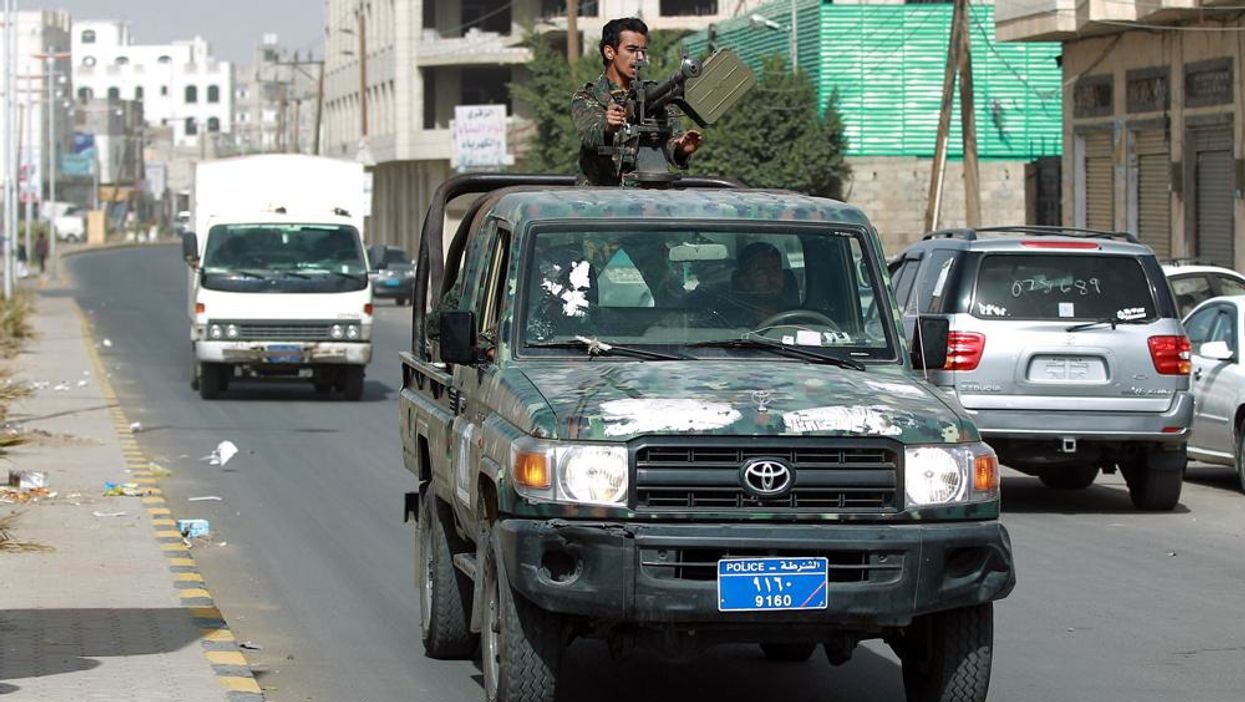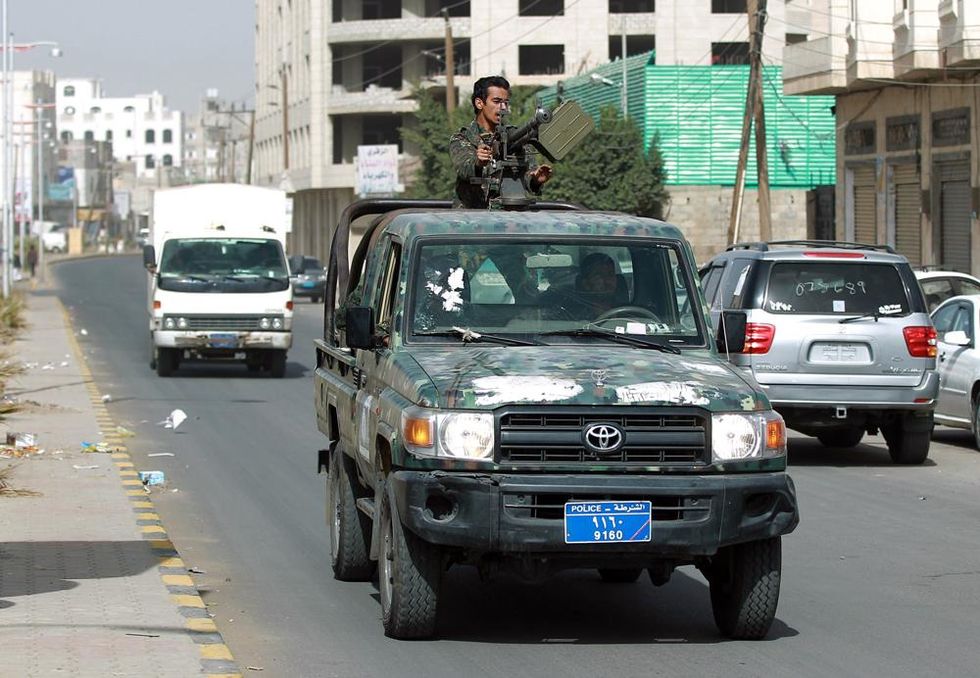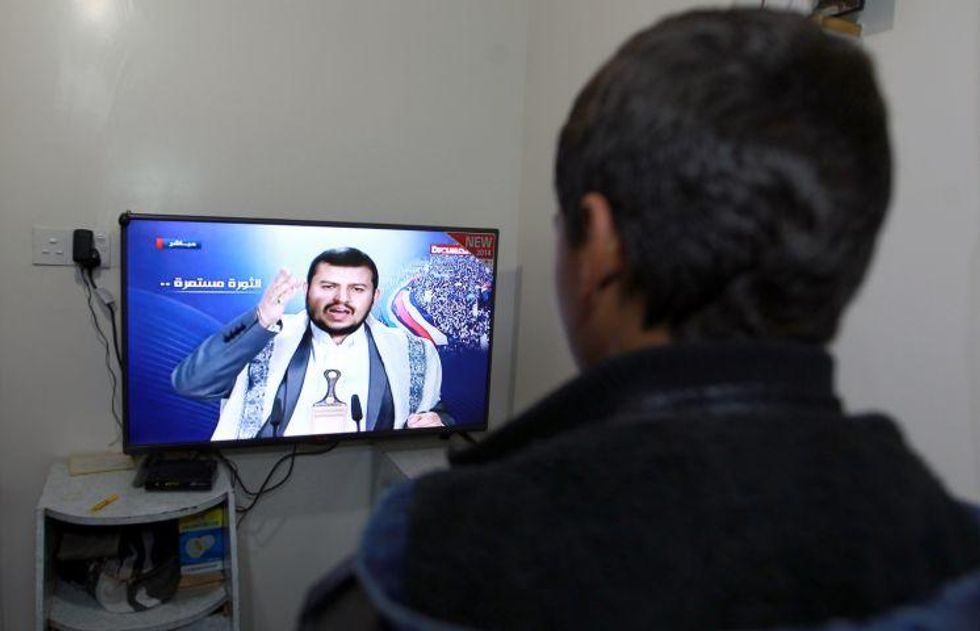News
Dina Rickman
Jan 21, 2015

Houthi rebels have surrounded the home of Yemen's president Abd-Rabbu Mansour Hadi and taken control of much of the capital city Sanaa in what experts have described as a "subtle coup".
Despite the insurgency, US State Department spokeswoman Jen Psaki has said Hadi remains the country's president and the US remains in touch with him.
The Houthi rebels are a minority Shia Muslim group and they are reported to have issued Hadi with a list of demands and asked for control over several government posts. Amid the confusion, we asked experts to explain what exactly is going on in Yemen:
Professor Fawaz A Gerges
A Lebanese-American academic and author, and currently a professor at LSE
This is a coup-like attempt on behalf of the Houthi. You can call it a subtle coup. But this is not out of the blue: The conflict with the Houthi movement and community has been going on for many years. It is one of the most disadvantaged and neglected communities in Yemen. What is ironic is that it is thought the former president of Yemen Ali Abdullah Saleh, who was deposed in the Arab spring, is basically collaborating with the Houthis against the existing order.
The Yemeni state is very fragile, very vulnerable.The next few days will show whether the Houthis are intelligent enough to really cash in their cheques or if they over-extend themselves.
Kim Sengupta
Defence correspondent for the Independent
Yemen used to be held forward by the Americans as a model of a state which had emerged from the upheaval of the Arab Spring with a degree of stability. But the success of the Houthi insurgency there will have huge impact on the region’s internecine conflict between Sunnis and Shias and beyond.
The impending agreement between President Abd-Rabbu Mansour Hadi and the Shia rebels, with him yielding to almost all of their demands, is a huge success for Iran and setback for Saudi Arabia and other Gulf states who are predictably decrying what has happened.
Yemen is also the base of al-Qaeda in the Arabian Peninsula (Aqap) who had claimed responsibility for the murders in the attack on the Charlie Hebdo offices in Paris, and had been involved in numerous plots against the West.
The US, which has sent two warships to the region following Wednesday's events is engaged in a campaign against Sunni Aqap; it would make sense for them to get the Shia Houthis as allies. But would they do so knowing the damaging effect it will have in their relationship with their Gulf allies?
Abubakr Al-Shamahi
British-Yemini journalist for https://alshamahi.com/English
In an ideal situation for the Houthis, they will become the people behind the throne and have a big say in how things are done but without having to take on the bureaucracy of running the state. They would much prefer a façade of an independent authority. Also in other parts of Yemen there would be much more hostility to Houthi rule. Their priority is not to get rid of the current president; they know he has no power. As for my predictions for the future? The more you learn about Yemen the more you learn to not make these predictions.
A man watches the televised speech of Shia Houthi movement's leader Abdul-Malik al-Houthi
Joseph Willits
Research for Caabu (Council for Arab British Understanding)
There has long been a historic neglect of Yemen, in both humanitarian and political terms, and this has always been ill-advised given its strategic position, with piracy in the Red Sea, threats to shipping, and al-Qaeda to name but a few threats. The Arab world’s poorest country, where a third of the people (over 5 million) go to bed hungry each evening, has become another regional battleground alongside Syria and Iraq where the rivalries between Saudi Arabia and Iran are being played out with devastating consequences.
Robert Fisk
The Independent’s Middle East correspondent
It’s all about the Saudis. No matter how complex the new Yemeni civil war may appear – nor how powerful the Houthi rebels have become in the capital of Sanaa – it’s the Zaidi sect of Shiism which the Houthis represent that frightens the Sunni Wahabi monarchy of Saudi Arabia, and not without reason.
More: Satellite imagery shows destruction of Syria's world heritage sites
Top 100
The Conversation (0)















